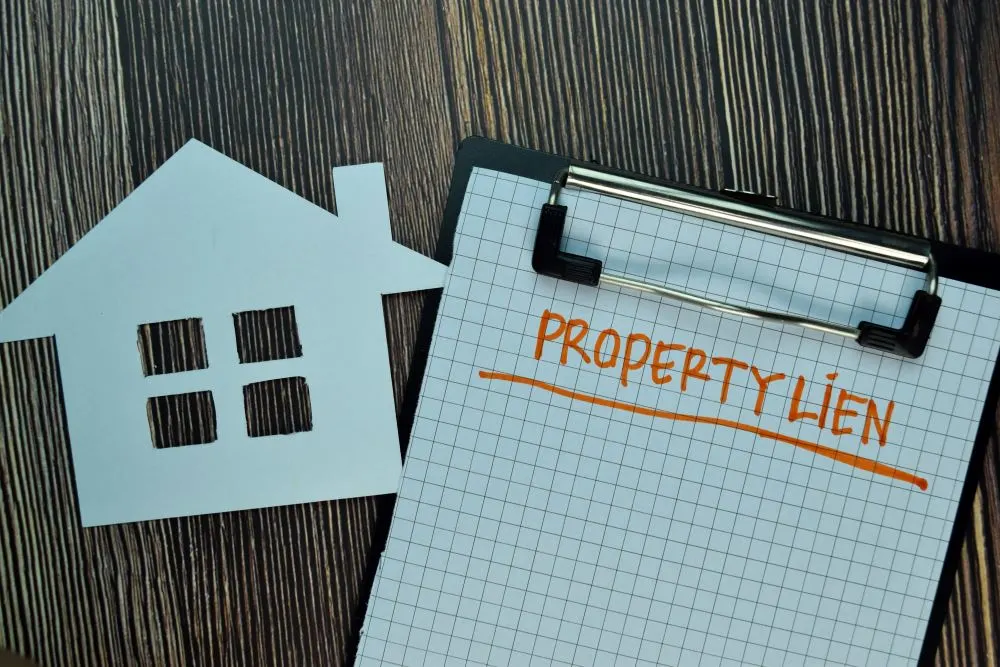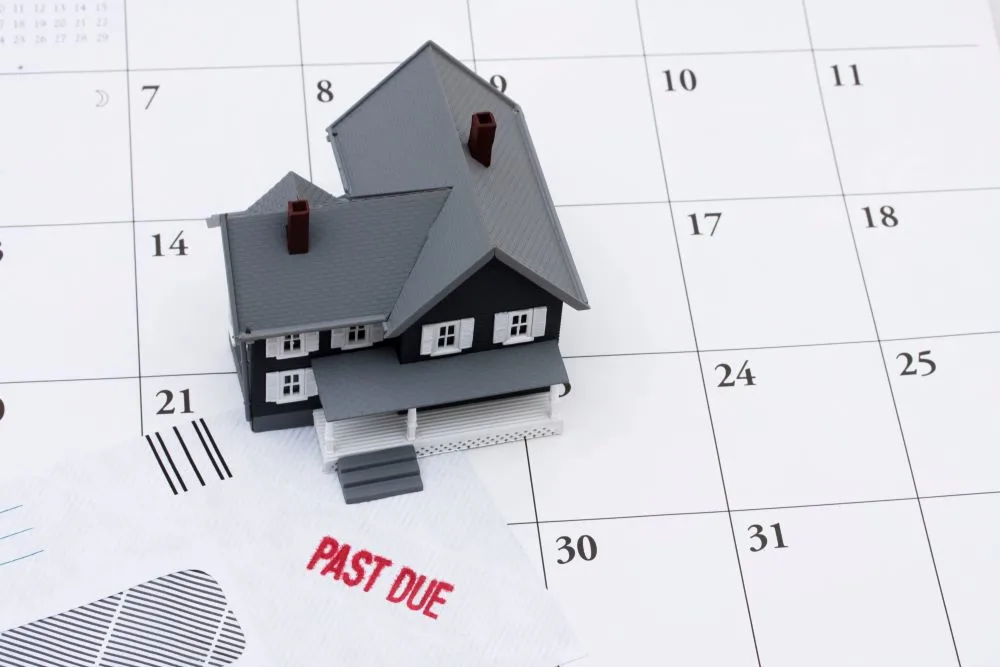Buying a new home is a new chapter of life that you want to begin without any hassle. But, sometimes, situations do not allow that pleasure, and you end up buying a home with unpaid HOA fees.
In this article, I talk about what it means to buy a home with unpaid fees, how it affects the sale, who ends up paying the HOA fees, and much more. I will also tell you why it might not be a bad thing to buy a house with unsettled HOA fees.

Liability for unpaid HOA fees often falls to the previous and current owners jointly. Such provisions can be found in state law, but not all states are the same. Often the HOA CC&Rs also assume joint liability. Some HOAs put full liability on new owners as the fees are attached to the property, not the person.
Can You Sell a House With Unpaid HOA Fees?
The most common reason why people attempt to sell a house when there are unpaid HOA fees is that they are financially strained and cannot afford the fees and/or the mortgage.
Selling a house with unpaid HOA fees is certainly possible, but it will always be more complicated. The success of the sale often depends on arrangements being in place to use the sale money to pay off the fees or to transfer the debt to the new owner.

One thing to bear in mind is to keep the HOA in the loop right from the start about the strained financial situation and intention to sell the house. Open lines of homeowner-HOA communication are vital in these situations. If you are the buyer, you will do well to ascertain if the HOA is aware of the potential sale.
Selling a Mortgaged House
It is quite common to see people selling their homes before paying off the full loan amount. In such a case, the sale proceeds are first used to pay off the loan balance and the closing costs. But if you are selling a mortgaged house with unpaid HOA fees, then things might not be so simple.
Ultimately, the ability to sell a financed house that carries unpaid HOA fees will depend largely on the terms of the mortgage agreement. If you are permitted to do so, or you are trying to buy a house that is being sold with unpaid HOA fees, then it is advisable to get hold of a really good real estate attorney. They can negotiate on your behalf, ensuring that things go smoothly and that your financial interests are protected.
But what makes selling a mortgaged property with unpaid HOA fees so difficult to navigate?
The chief reason for this is that most state laws and HOA governing documents give the association power to put a lien on the property for non-payment of HOA fees. You can still sell a house with a lien against it; however, it is much more difficult for a couple of reasons, which we go through below.
1. Liens Take Precedent
Property finance institutions are leery of situations in which a lien exists against a property due to the fact that a lien ensures that the sale proceeds are first used to pay the HOA dues before it goes to the seller or is used for payment of any other loans.
State laws and HOA’s CC&Rs give more importance to an HOA lien because HOAs protect the community and make sure that the property value remains intact. Unpaid HOA fees can reduce the community fund, affecting the property maintenance in the long run.
The exception to this rule is a first mortgage that came into effect before the HOA dues became outstanding or if the lender has perfected the lien. However, if the debt is high, then an HOA can place a “super lien” on the property that ensures a part of the HOA dues is paid even before the first mortgage.

There’s also a legal rule, “first in time, first in right,” which means liens are given priority as per the order in which they were recorded. This rule becomes applicable whenever there are multiple liens on a property. Sometimes, when there are multiple parties involved, some sellers choose to settle all the outstanding via escrow.
2. Buyers Don’t Like Liens
Liens scare away many buyers (and the buyers’ finance houses). Those that are not discouraged can take advantage of the constrained financial situation of the seller and offer them a low price. The lower the sale price in addition to the HOA’s lien can result in insufficient repayment of the loan.
Selling a Non-Mortgaged House
The ease of selling a non-mortgaged house without clearing the HOA dues depends largely on the degree of transparency of the seller with the HOA.
As mentioned earlier, people sell houses with unpaid HOA fees because they are strapped for cash, and the unpaid fees are not likely to be the only debt they have. Selling off a massive asset like a house can be a life-saver, but as soon as debtors find out about the sale, they will be clamoring for first dibs.
Now, the power of the HOA to place a lien against a property means that they can get their “pound of flesh” first, but as the lien itself can affect the sale, this is not always the best route for either the HOA or the seller. However, if the homeowner were to withhold the fact that they are selling the house and the HOA were to find out (which they would), then there is a greater chance that a lien is the course they would take.
After placing the lien, the HOA will then record this lien with the county recorder so that potential buyers are aware that a lien exists on that property. This does not necessarily stop the sale, but it will scare off potential buyers.

A better approach would be to inform the HOA that the house is being sold and then negotiate terms of payment for once the sale has gone through.
Liability for Unpaid Fees Depends on State
As the new owner of a property with unpaid HOA dues, you might be liable under state laws to pay for the dues. Sounds unfair, right? But, unfair or not, state laws have such provisions. They prioritzse the HOA in order to ensure that it always has enough funds to continue running, even at the cost of an innocent party. Let’s look at a few examples.
In Florida, the HOA is governed by Florida Statutes Sec. 720.3085, which places at least part of the liability for unpaid HOA fees on the new owner. According to the statute:
“[An] owner, regardless of how his or her title has been acquired, including by purchase at a foreclosure sale or by deed in lieu of foreclosure, is liable for all assessments which come due while he or she is the unit owner. Additionally, a unit owner is jointly and severally liable with the previous owner for all unpaid assessments that came due up to the time of transfer of title.”
HOAs in Georgia are regulated by The Georgia Property Owners’ Association Act (the “POA), which places liability for unpaid HOA fees on both the seller as well as the buyer.
In California, shifting the liability to the new owner becomes difficult as the common property law demands the seller to disclose to the purchaser a list of documents and information, including an official statement of:
“…true information on late charges, interest, and costs of collection which, as of the date of the statement, are or may be made a lien upon the owner’s interest….”
Most state laws want to ensure that, no matter what, the unpaid HOA fees are duly collected. Hence, the laws are made in the interest of the HOA and do not consider the buyer. So, before you purchase, insist on full disclosure and ask up-front about any unpaid HOA dues.
CC&Rs Can Determine Financial Liability
When you move into an HOA-regulated community, you become a member of the association. You sign CC&Rs (Declaration of Covenants, Conditions, and Restrictions), which is a legal contract making you legally bound to follow the rules of the HOA (unless they are unenforceable because they contradict laws that take precedent).
One of the enforceable rules is paying the HOA fees and special assessments. It is usually a long-term agreement that changes only when the owner of the property changes

According to the CC&Rs, unpaid HOA fees and any other dues of the previous owner automatically default to become the responsibility of the new owner. As mentioned earlier, the fees and assessment are on the property irrespective of the owner.
Even if the owner changes, the charges levied on the property remain until they are paid.
When it comes to the collection process, the HOA will follow the steps mentioned in the CC&Rs. The homeowner will be given several warnings and notices, and if the dues are still unpaid, a lien will be placed on the property.
If you buy an HOA property with a lien against it, then as the owner, it is up to you to get the lien removed from the property or face foreclosure.
You might be wondering why HOA CC&Rs place this financial liability on the new owner. The answer is very simple. As a buyer, you are expected to apply due diligence and do a title search before buying a property. So, when a new owner buys a property with unpaid fees and a lien, HOAs take it for granted that the buyer bought the property in full knowledge of the HOA dues.
If you plan to buy a property in an HOA-regulated neighborhood, then do not rely on the seller to disclose everything. Ask your closing attorney to formally request the HOA for a closing letter that will state if there’s any amount due.
A closing letter is a statement that gives you information about the financials of the property you are about to purchase. It includes the outstanding balance plus any fees that you need to pay to join the homeowners association.
Negotiate the Fees in a Short Sale
Unpaid HOA fees can be a blessing in disguise for buyers as it opens up the possibility of a short sale.
For the unversed, a short sale is a sale where a property is sold for less than what it’s worth because the owner is financially distressed and is looking for relief.
A short sale allows the buyer to negotiate the selling price as well as the number of back-fees that one is willing to pay.
For a short sale to take place, the seller must get approval from all parties concerned. They need to convince the mortgage lender to accept less than the mortgage amount and incur a loss. Even the HOA needs to be persuaded to reduce the amount of unpaid HOA fees.
Generally, all parties agree willingly as a short sale is more cost-effective than a foreclosure. A short sale allows everybody to get back some of the debt. Everybody involved agrees to accept some kind of loss as long as they are not the only ones losing out.
With the right negotiation tactic, a buyer can get the house and pay off the unpaid fees for less than the house is worth.
Sources
https://www.nolo.com/legal-encyclopedia/nevada-hoa-foreclosures.html
https://www.nolo.com/legal-encyclopedia/ny-foreclosure-laws-procedures.html
https://www.nolo.com/legal-encyclopedia/florida-hoa-coa-foreclosures.html
https://www.nolo.com/legal-encyclopedia/kentucky-hoa-coa-foreclosures.html
https://www.nolo.com/legal-encyclopedia/texas-hoa-coa-foreclosures.html
https://www.nolo.com/legal-encyclopedia/california-hoa-foreclosures.html
https://www.nolo.com/legal-encyclopedia/washington-hoa-coa-foreclosures.html
https://www.nolo.com/legal-encyclopedia/what-does-mean-perfect-lien.html
https://www.isoldmyhouse.com/selling-house-with-lien/
https://www.homelight.com/blog/buyer-is-hoa-covered-in-mortgage/
https://www.nolo.com/legal-encyclopedia/homeowners-association-super-liens.html
https://www.nolo.com/legal-encyclopedia/hoa-liens-foreclosures-an-overview.html
https://pocketsense.com/responsible-paying-hoa-dues-short-sale-property-10530.html
https://budgeting.thenest.com/buy-short-sale-condo-30795.html
https://www.hopb.co/blog/hoa-fees-what-happens-when-homeowners-fail-to-pay-as-required
https://www.hopb.co/blog/understanding-hoa-liens-and-foreclosures#lien-meaning
https://www.hopb.co/blog/buying-and-selling-an-hoa-property-lets-get-this-thing-right#takeaways
https://mrdaymude.com/unpaid-hoa-assessments-your-rights-under-davis-stirling/
https://www.mrdaymude.com/wp-content/uploads/2013/05/Code-of-Civil-Procedure-section-729.050.pdf
https://cedarmanagementgroup.com/hoa-foreclosure-truth-and-lies/
https://www.proplogix.com/blog/things-to-know-before-you-make-an-offer-on-a-home-in-an-hoa/
